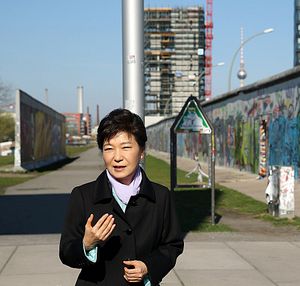The outbreak of Middle East Respiratory Syndrome (MERS) in South Korea is more than a public health issue. Indeed, for a government seemingly more concerned about the profitability of hospitals than public health, this point seems obvious. If profit is a – or possibly the – chief concern, then what the government is likely most worried about is the threat MERS poses to commodity circulation and consumption.
MERS unquestionably threatens commodity circulation: production, consumption, and gainful employment. The raison d’être for modern governments, and the many apparatuses of the state, is to regulate the conditions of capitalist exchange – what Michel Foucault would call the “reality” of the capitalist economy itself. In order for exchange to occur, the conditions have to be right. War, famine, social unrest, and the like threaten the exchange of goods and services.
Many contemporary thinkers have addressed this issue, from Karl Marx to Michel Foucault to Karl Polanyi. Perhaps one of the least esoteric accounts of the state’s role in regulating the conditions of commodity exchange comes from American sociologist Fred Block.
Block makes a basic, twofold claim in this 1977 article regarding the structural incentives that governments have to act in the interest of capital: business confidence and class struggle. If there’s one thing that Fox News gets right, it’s that business confidence really does matter. The capacity of the state to finance itself through taxes and other fees depends entirely on economic activity. Further, public support for governments and states tend to collapse in times of economic decline.
Browsing the Korean press covering the MERS outbreak, one can easily see the threat the disease poses to the (economic) interests of the South Korean government and state. One such article in the Hankook Ilbo (in Korean) is explicit about the primary threat posed by MERS. “Even before the slump in domestic demand caused by the sinking of the Sewol could recover, another crisis has occurred that will, again, hurt consumption,” writes Lee Young-chang, the article’s author.
The article goes on to quote Lim Hui-jeong, a Hyundai Research Institute fellow, as saying, “When the outbreak of such a disease occurs, consumers avoid tourist areas, shopping malls, or areas where crowds gather. If the situation is prolonged, households and firms will cancel or delay consumption and investment.” Lee expounds on this assessment, writing, “This means that if the societal unrest caused by MERS continues, a vicious cycle will be inevitable: decrease in household consumption → decrease in production and investment by firms → reduction in employment.”
The industry that will be most heavily affected is tourism:
A prolonged MERS outbreak is likely to cause a decrease in tourists from Greater China. Tourists from China, Hong Kong, and Taiwan are sensitive to the spread of infectious disease due to the outbreak of SARS in that region from 2002-2003. These tourists are already canceling travel plans to Korea and decreasing consumption in Korea.
The SARS outbreak in China and Hong Kong had serious economic consequences. Comparing the economic impact of viral disease outbreaks in other parts of East Asia, Lee finds cause for concern. “The Chinese economic growth rate in the second quarter of 2003 decreased by 2.9 percent from the previous quarter. Hong Kong showed a negative growth rate during the first and second quarters of 2003. Total economic damages caused by SARS […] are estimated at around 55 trillion won (about $500 billion).”
While the Park Geun-hye administration’s handling of the MERS outbreak is, by many measures, poor, it is important to remember what motivates governments to act in the first place. Even if the government acts in the name of public health, this is in many (though not all) ways no different than acting in the name of business interests. The result for Park is likely to be criticism from both the business community and civil society.
































